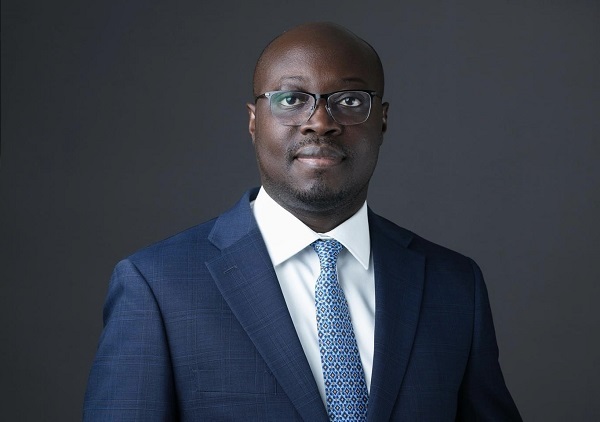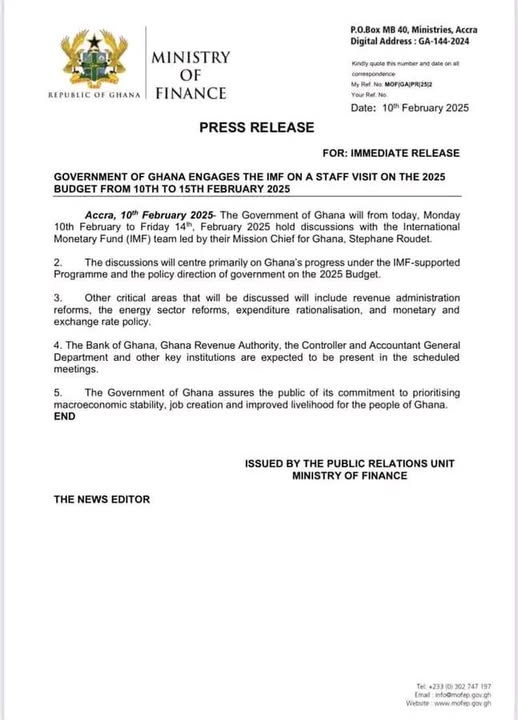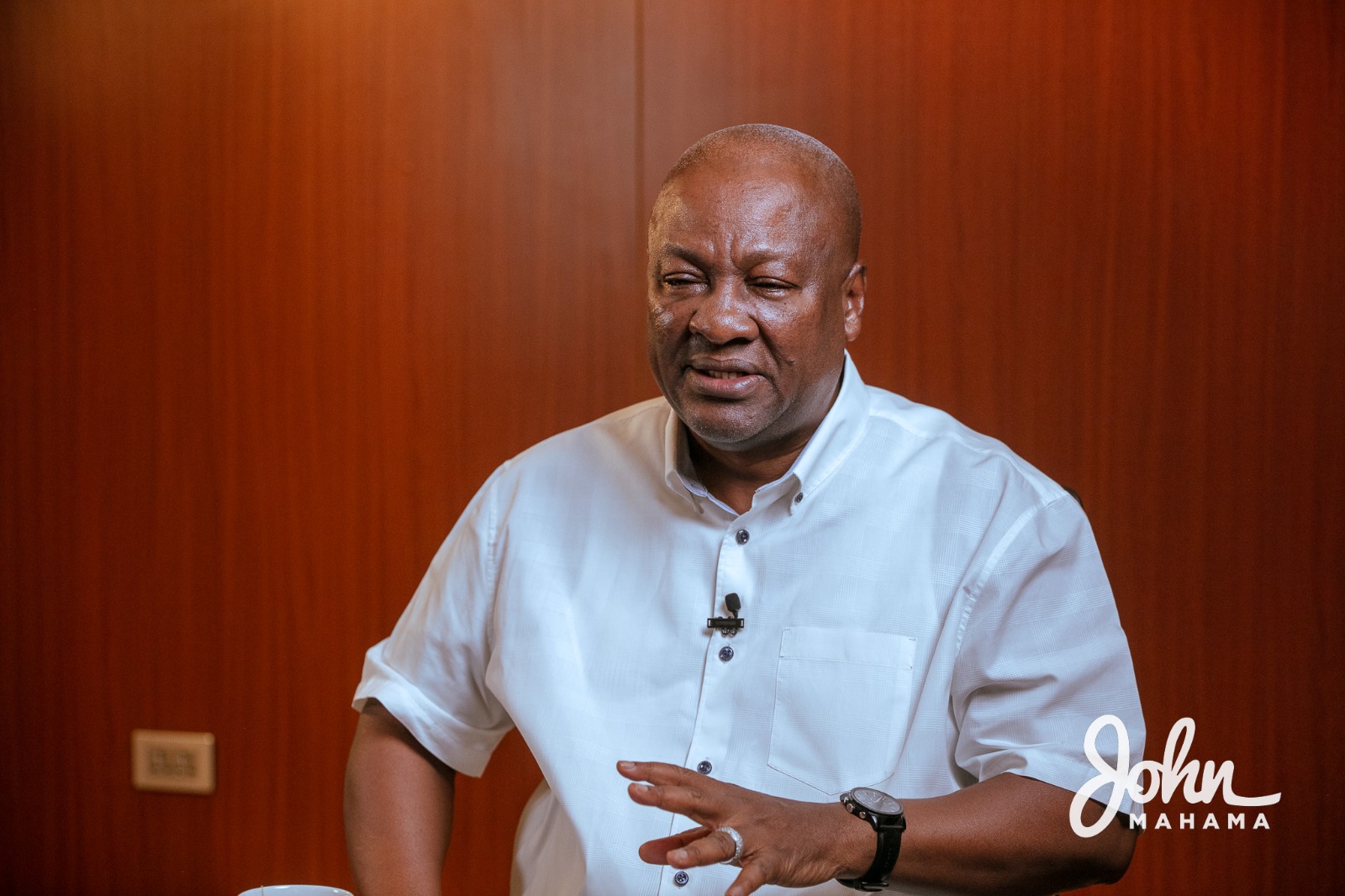IMF ENGAGES GHANAIAN GOVERNMENT ON ECONOMIC REFORMS AND 2025 BUDGET

The International Monetary Fund (IMF) has arrived in Ghana to commence a series of critical discussions with the government on the state of the economy and the upcoming 2025 Budget. The five-day engagement, which began today, will also address Ghana’s progress on external debt restructuring, energy sector reforms, and plans to stabilize the nation’s fiscal outlook.
The talks come ahead of the presentation of the 2025 Budget to Parliament in March, with the IMF team expected to ensure that the budget aligns with the Fund’s program objectives for Ghana. Key areas of focus include revenue mobilization strategies and measures to reduce the country’s debt stock to sustainable levels. The IMF will also assess the potential impact of proposed tax reforms, including the possible removal of the Betting Tax, COVID-19 Levy, and E-Levy, which could result in an annual revenue shortfall of approximately 10 billion cedis.
Energy Sector and Privatization Plans on the Agenda
In addition to fiscal matters, the IMF is seeking clarity on the government’s plans to address Ghana’s energy sector challenges. Discussions are expected to include proposals to privatize parts of the operations of the Electricity Company of Ghana (ECG), a move aimed at improving efficiency and reducing the sector’s financial burden on the economy.
The Ministry of Finance has outlined a detailed schedule for the meetings, emphasizing that this engagement is not part of the formal review process but rather a preparatory dialogue ahead of the fourth review of Ghana’s IMF program later this year. The review will be based on fiscal data for the period ending December 2024.
Program Extension and Additional Funding
Finance Minister Dr. Ato Forson has indicated the government’s intention to seek an extension of the IMF program to secure additional funding for economic stabilization. The ongoing discussions will provide an opportunity for both parties to finalize details on this proposal. The IMF has reiterated its openness to reviewing the program but stressed that any agreement must remain consistent with the broader objectives of fiscal discipline and structural reform.
Since Ghana entered into the IMF program in May 2023, the country has received approximately $1.9 billion in financial support. The Fund has commended Ghana for its progress, particularly in debt restructuring and macroeconomic stabilization. In a statement following the third review, the IMF noted that Ghana’s economic growth in the first half of 2024 exceeded expectations, inflation has declined, and both fiscal and external positions have shown significant improvement.
Looking Ahead
As the IMF team engages with Ghanaian officials, stakeholders are keenly watching for outcomes that could shape the country’s economic trajectory in the coming year. The discussions are expected to lay the groundwork for the 2025 Budget and provide a clearer path toward sustainable growth and debt management.
This visit underscores the IMF’s continued commitment to supporting Ghana’s economic recovery, even as the government faces tough decisions on tax policy, energy sector reforms, and fiscal consolidation. The results of these talks will likely have far-reaching implications for Ghana’s economy and its partnership with the IMF.

Source:NKONKONSA.com





